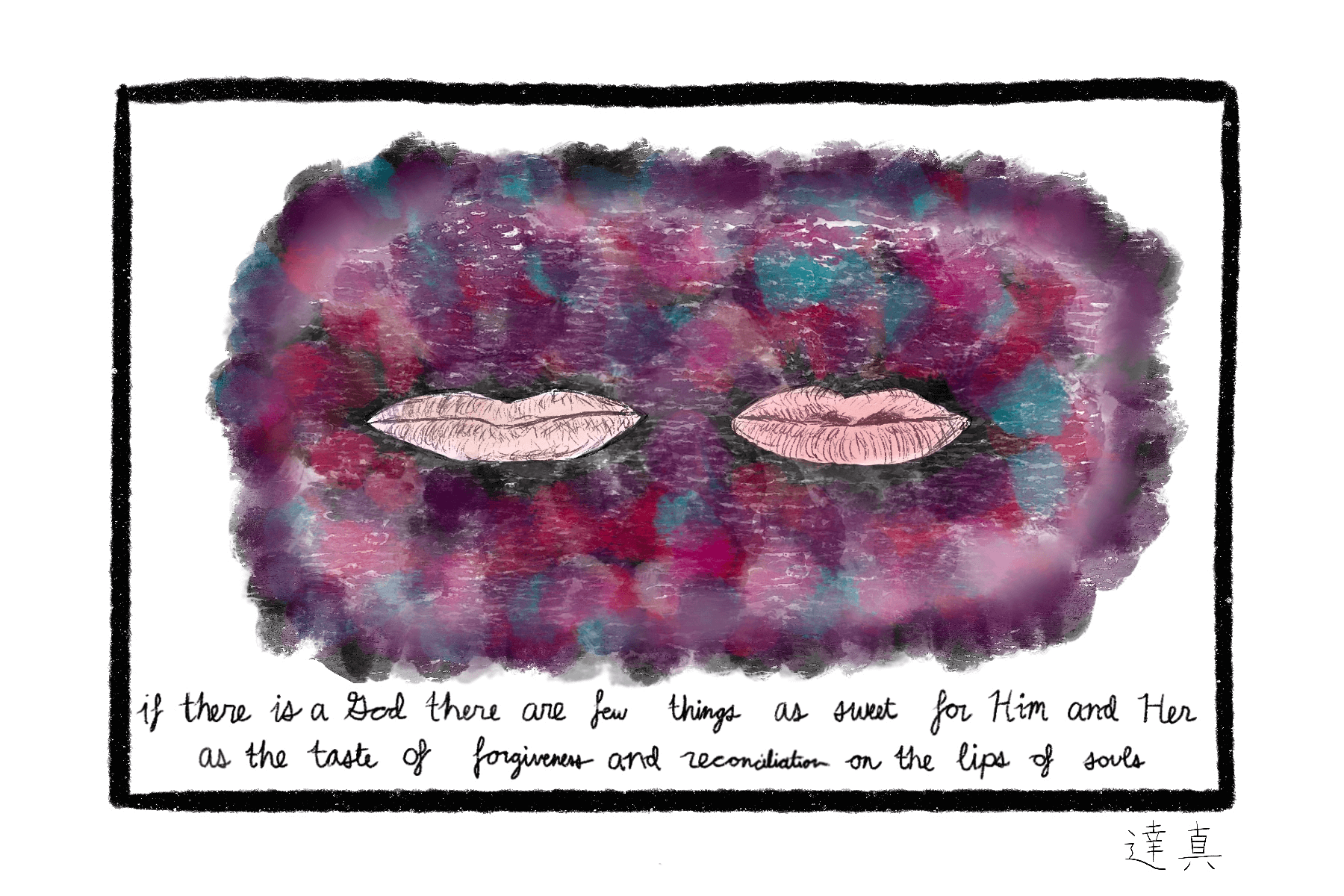
When I hold a grudge, it burns in my heart, a tarry black ball of coal fuming anger, resentment, and hatred.
I do myself spiritual injury when I do not forgive. The pain I hold onto by not forgiving harms me far more than those who have hurt me. Forgiveness is sanity.
For me, the paradox of forgiveness is that I strive to forgive readily, quickly, as soon as possible—and yet I cannot force myself to forgive. The heart cannot be rushed towards love.
On the one hand, I aspire to forgive. I aspire to forgive every hurt on my heart, and everyone who needs to be forgiven: anyone who ever injured me or caused me difficulty in any way. This includes those who hurt me even very slightly, even unintentionally, and also those who hurt me very deeply. I also aspire to forgive myself: for my mistakes and and my weaknesses and my shortcomings, for the parts of myself I cringe at and loathe and find difficult to love, for the ways I fall short of being the person I might hope or know I could be. I aspire to forgive all that needs forgiving.
On the other hand, I know that I cannot force my heart to forgive. I am patient with myself. I honor the wounds on my heart, tending to them with love and care like a cut on my skin or a broken limb in a cast. With each passing moment and layer of pain, I feel—I feel the anger and rage, the sorrow and the grief and the loss, the fear and the anguish, the dizzying confusion that bears no answers, even the frozen numbness that feels endless and eternal—I feel it all, moment after moment, layer after layer.
I honor what is on my heart by feeling it, and, if possible, if it is available, if it is safe, by expressing it to the person who hurt me. For me, interpersonal processing and relational healing is the gold standard of forgiveness. When I can share my truth and have it be heard, received and acknowledged and even apologized for, space opens up and forgiveness becomes possible.
Unfortunately, in practice, such reconciliation is not always possible. I may not feel ready to talk to them, or it may not feel safe. They may not be willing to hear from or speak with me. Or in some cases, they have died, and are unable to speak with me. When conversation is impossible or simply undesirable, I have resorted to writing a letter that I do not send, or to having an an imagined conversation.
I hold all of this as lightly as possible, gently aiming and steering towards forgiveness without rushing or forcing. And when the moment comes when I am finally ready to forgive: I pounce.
Here are some brief words and aphorisms I have written for myself on the nature of forgiveness, to remind myself of how I wish to hold it:
- if there is a God there are few things as sweet for Him and Her as the taste of forgiveness and reconciliation on the lips of souls
- you can forgive everyone who’s ever hurt you, they were trying their best and they actually helped you become who you are
- your parents are former versions of yourself, they were trying their best, love them fully as they are, spend time with them if they’re still alive
- forgive all your mentors and heroes and friends and lovers and enemies
- ancestors are the past, children are the future, love and forgive all
- tell people you love them and forgive them
- it is never too late for forgiveness
- when I forgive someone it’s often for self-oriented reasons. I know that if I don’t forgive someone, if I hold a grudge, it will burn hatred and pain into my heart, and hurt me more than it hurts someone else. forgiveness is sanity
- when you open your heart to love, you open your heart to getting hurt. part of the deal. all we can do is try our best, be willing to apologize and forgive—that’s necessary for letting love into our life, and for giving it to someone else
